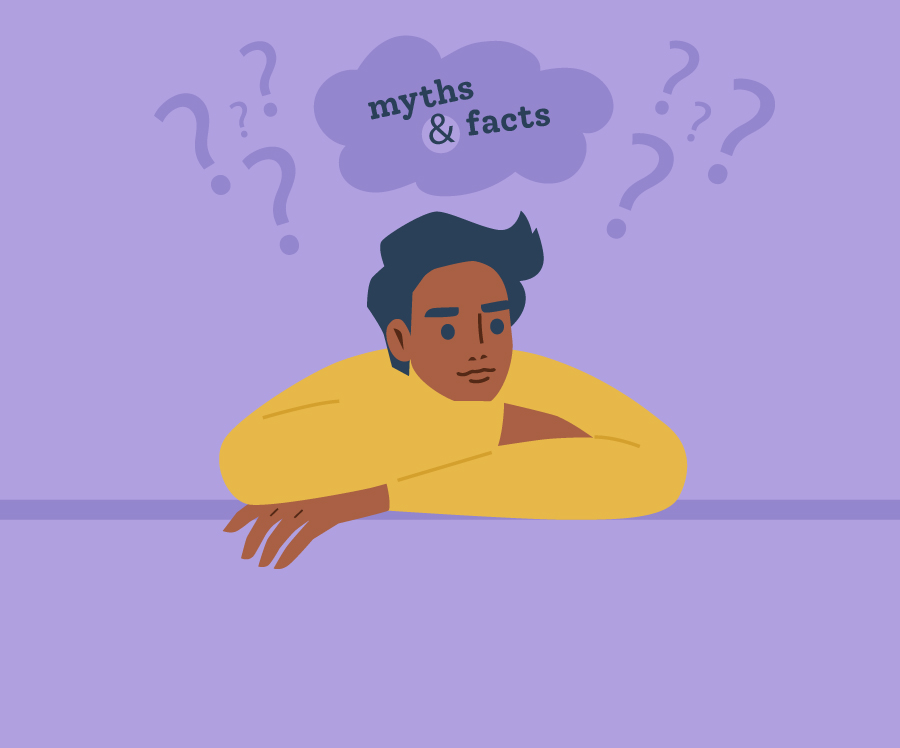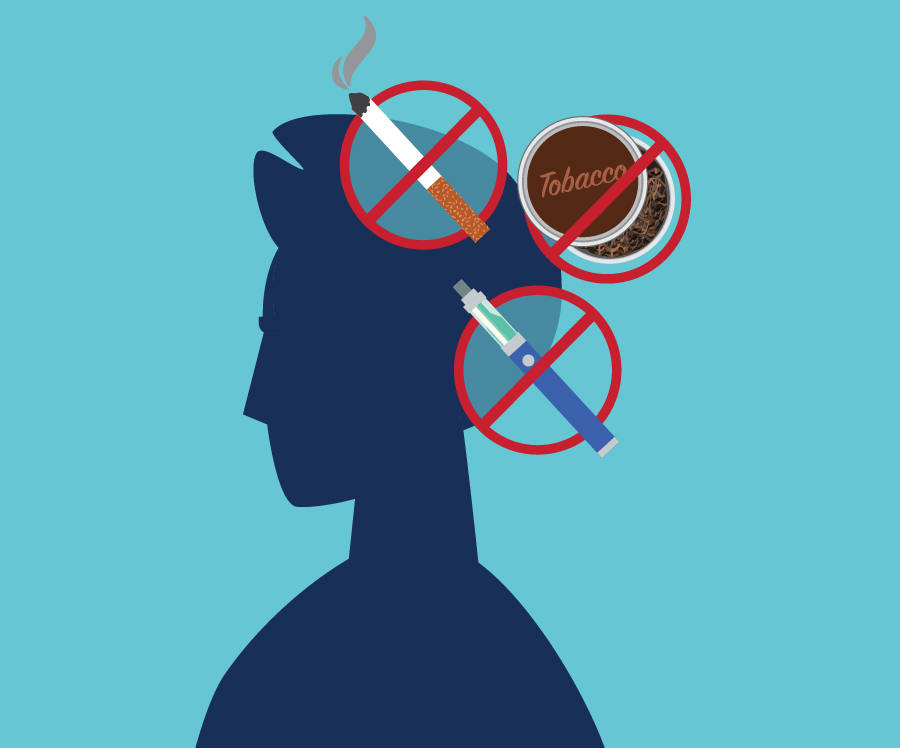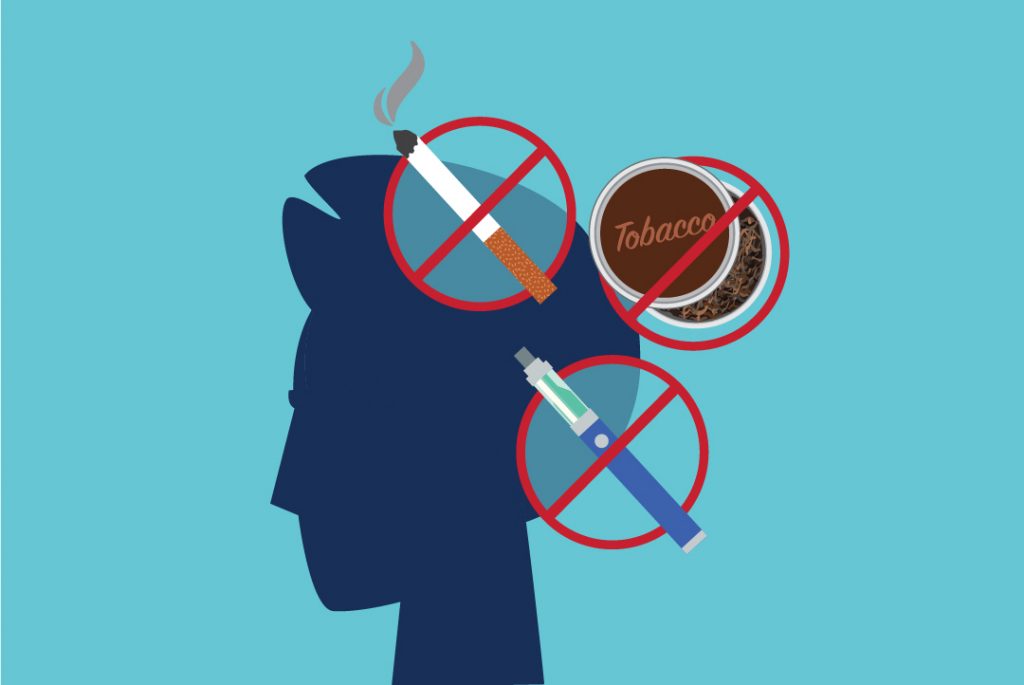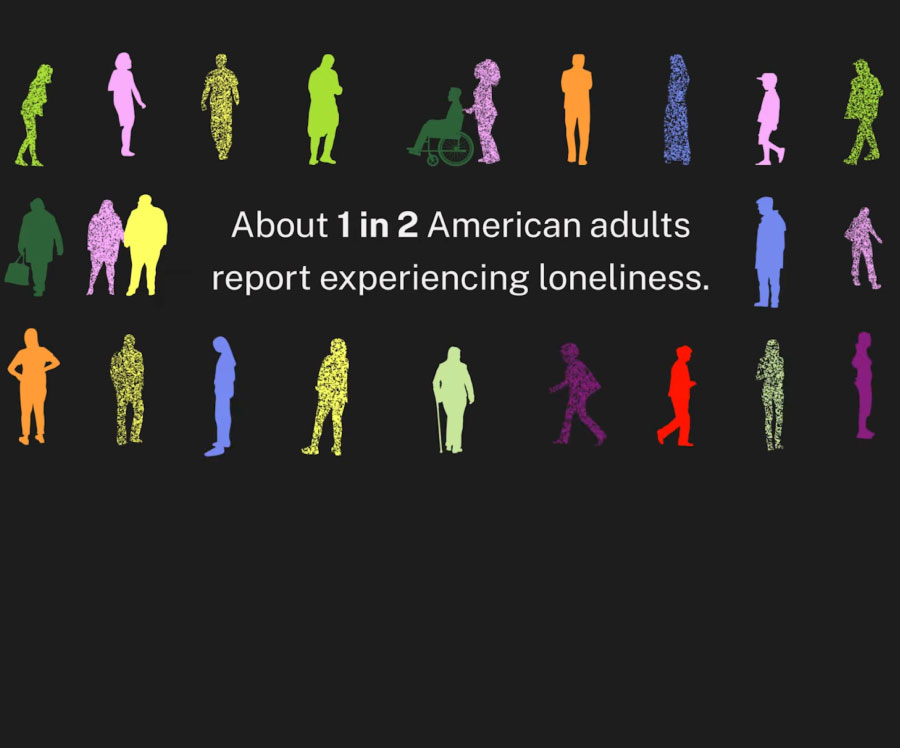GET THE FACTS
FEBRUARY 2024
5 myths about men’s health
There are a lot of misconceptions about men’s health. You may have heard some yourself. And while many aren’t harmful — no, wearing a hat won’t make you go bald — others can lead to more serious health issues.
Clearing up these myths is an important first step. Here are five you should pay attention to.
Looking for more? Find other articles below
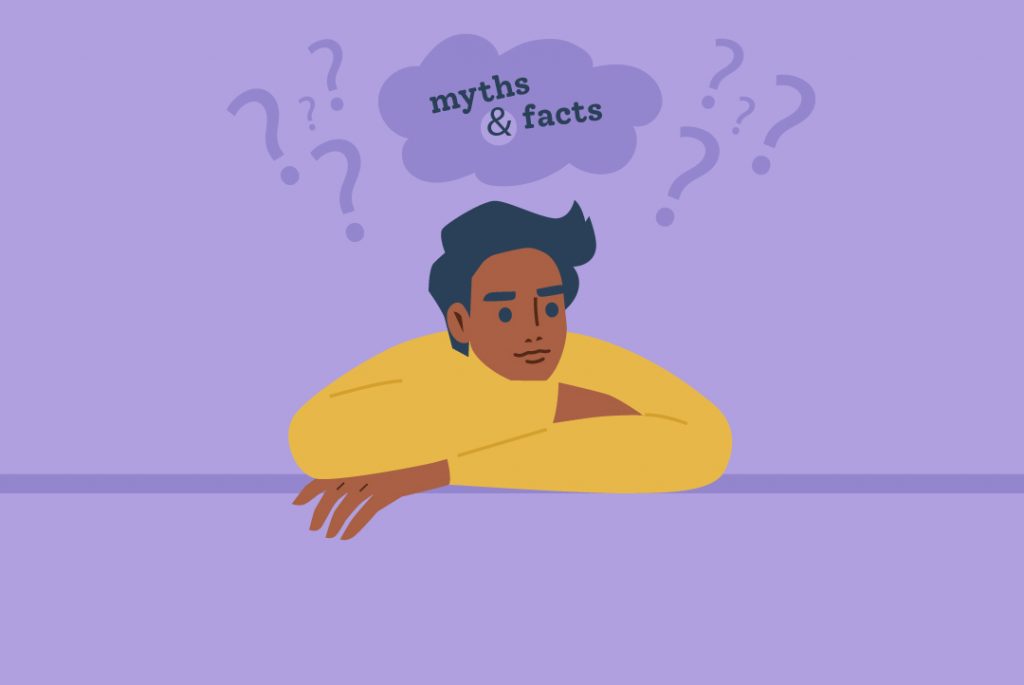

Myth #1: Men don’t get breast cancer.
Although breast cancer is most often found in women, 2,800 men in the U.S. will be diagnosed with the disease each year. Most men don’t know they can get this type of cancer, so they may ignore early warning signs, such as a lump or swelling in the breast. Their condition may go untreated until the disease has progressed and they have more severe symptoms.
Risk factors for men include having a family history of breast cancer, an inherited gene, obesity and age. Getting tested regularly can help men control their risk and seek appropriate treatment if necessary.

Myth #2: Erectile dysfunction (ED) only affects older men.
This common condition is nothing to feel insecure about. Nearly 40% of men are affected with ED by age 40. While the decrease in testosterone that happens as you get older can play a part, there are a wide range of factors that can cause ED in men of all ages.
Findings show that 71% of men who have experienced issues related to sexual health, including ED, have also been diagnosed with cardiovascular disease or diabetes. In addition, trauma and post-traumatic stress disorder (PTSD) can put men at a higher risk of developing symptoms. Other causes include tobacco use, cannabis use, alcohol or other substance misuse, and certain prescription drugs.
Fortunately, you can make these lifestyle changes to reduce your risk of ED symptoms:
- Exercise regularly.
- Quit tobacco and nicotine products.
- Drink alcohol and use cannabis in moderation.
- Eat a balanced diet with plenty of fruits and vegetables, lean proteins and whole grains.
- Maintain a healthy weight.
There are also a variety of treatment options available. Talk to your doctor about the best option for you.

Myth #3: There’s no benefit to seeing a doctor once a year.
It’s common for men to think they don’t need to see a doctor on a regular basis. But annual physical exams are important for men of all ages, not just when they need a colon or prostate cancer screening, or when there’s a health concern.
Testicular cancer disproportionally affects men in their 20s and 30s. Other threats include early heart disease, high blood pressure and diabetes. Regular checkups are an opportunity to identify health concerns early when they’re easier — and less expensive — to treat.
Establishing a relationship with a primary care provider (PCP) as a young adult can benefit you throughout your life. Your doctor will know your health history and what diseases you may be at risk for. Finding someone you can trust early on can help you as you age and your health needs change.

Myth #4: If you don’t have any symptoms, you don’t have prostate cancer.
Prostate cancer affects 1 in every 9 men as they age and often doesn’t cause any symptoms until it reaches a more advanced state. One of the ways to reduce your risk is with prostate-specific antigen (PSA) screening test, especially if you’re 55 or older.
If men do have symptoms, the most common are blood in the urine, the need to urinate often or the inability to urinate at all, and pain in the lower back, hips and upper thighs. While these symptoms may be caused by other health concerns, be sure to tell your doctor if you experience them.
You can take steps now to reduce your risk of getting prostate cancer by maintaining a healthy weight and staying active. Choose a low-fat diet with lots of fruits and vegetables. And aim for 30 minutes of exercise most days of the week.

Myth #5: Depression and anxiety are signs of weakness.
Nearly 1 in 10 men experience depression or anxiety. These are serious health conditions that have nothing to do with being weak or lacking willpower. Much like a physical illness, depression and anxiety can happen to anyone regardless of social class, income level or intelligence.
Symptoms of these mental health conditions often look different in men. They may include feeling restless, tense, irritated or isolated, working all the time or having very little energy, not seeing value in what you do, or experiencing headaches, insomnia and digestive issues. Men may avoid treatment because they worry the stigma of mental illness will cause them to lose the respect of family or friends.
But ignoring depression and anxiety, staying busy or thinking you can just handle it isn’t a solution. These efforts won’t make the condition go away and could lead to more serious challenges. Fortunately, there are proven treatments, including therapy and medication, that can help.
Know the truth
Knowing the truth about men’s health can help you take better care of yourself. Your Costco benefits are there to provide the right care, whenever needed.
Sources:
Centers for Disease Control and Prevention. Breast cancer in men.
American Cancer Society. Key statistics for breast cancer in men.
Advanced Urology. Myths and facts about erectile dysfunction.
Cleveland Clinic. Erectile dysfunction.
U.S. News and World Report. Primary doctors for men.
Prostate Cancer Foundation. Five myths and misconceptions about prostate cancer.
UNICEF. Busted: 7 myths about mental health.
Medical News Today. Men’s mental health: “man up” is not the answer.
Anxiety and Depression Association of America. Men’s mental health.


